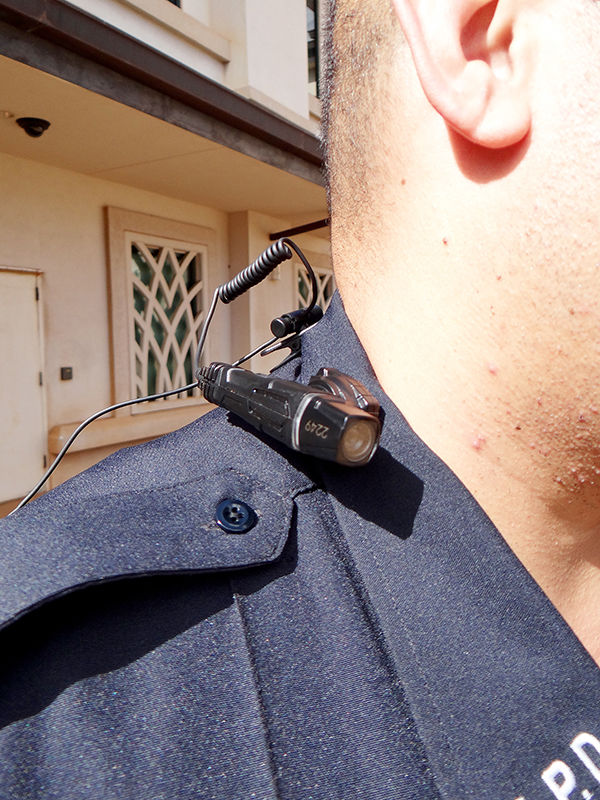LIHUE — After further review, cameras could be the way to go. The Kauai Police Commission Friday voted to support the Kauai Police Department’s priority projects list that includes using officer body cameras. Chief of Police Darryl Perry said officers
LIHUE — After further review, cameras could be the way to go.
The Kauai Police Commission Friday voted to support the Kauai Police Department’s priority projects list that includes using officer body cameras.
Chief of Police Darryl Perry said officers tested the devices during a pilot program that went well. He said body cams would benefit the public and protect officers and the county from frivolous claims. If approved, KPD would be the first county law enforcement agency in the state to have all officers issued with body cameras.
“We see the benefits but also the limitations,” Perry said.
A limitation, he said, is that cameras are still not as complex as the human eye which has better perception to variations of light and speed. An officer could react to something that is not as clear on camera.
“Things can happen in a fraction of a second and the camera doesn’t pick it all up,” Perry added. “It is close, though, and we can get an actual depiction of what happened and that is not subject to interpretation.”
A timetable was not announced but, if approved, Perry said at a previous meeting that a system and cameras would be paid through criminal forfeited funds and eventually incorporated into the police budget. The first year costs for 127 units and 13 docking stations would be $150,360. Annual maintenance of a web-based computerized video management system would be approximately $66,000.
Officers would wear a pager-sized camera that clips to the uniform, sunglasses or head-gear to record high definition video and audio of their public interactions.
Some police departments using them report drops in citizen complaints, fewer incidents of excessive force, and the unbiased evidence results in faster plea deals at court, according to Perry. Other departments considering or testing body cams include Philadelphia, Pittsburgh, New York, Chicago, Houston and Los Angeles.
KPD reported to the commission in August that it was implementing a pilot program with the AXON flex body worn camera. Cameras were put under the national spotlight following the Michael Brown shooting in August in Ferguson, Missouri.
Advocates said if police officer Darren Wilson was wearing a body camera at the time of Brown’s shooting, the footage would have cleared up what happened and whether there was any wrongdoing on Wilson’s end.
But some have expressed concern about the proliferation of surveillance cameras in American life.
A 2013 ACLU report expressed those concerns, but said it supported body cameras for its potential to protect against abuse of power by police officers. Body cameras “have the potential to be a win-win, helping protect the public against police misconduct, and at the same time, helping protect police against false accusations of abuse,” the report stated.
Commission Chair Charles Iona said that the Maui Police Department issued squad car cameras in 1988. There was some fuss at the time, but in the end, it proved a good decision.
“If a defense attorney wanted to make something else of what occurred, then we had the video to show that it was not a random stop and there was evidence,” Iona said. “I don’t know why there is pushback on the body cams, when we should push forward to protect officers and the public.”
KPD will brief the County Council’s Public Safety Committee Jan. 5 on the matter, which will then present to the full council later.


